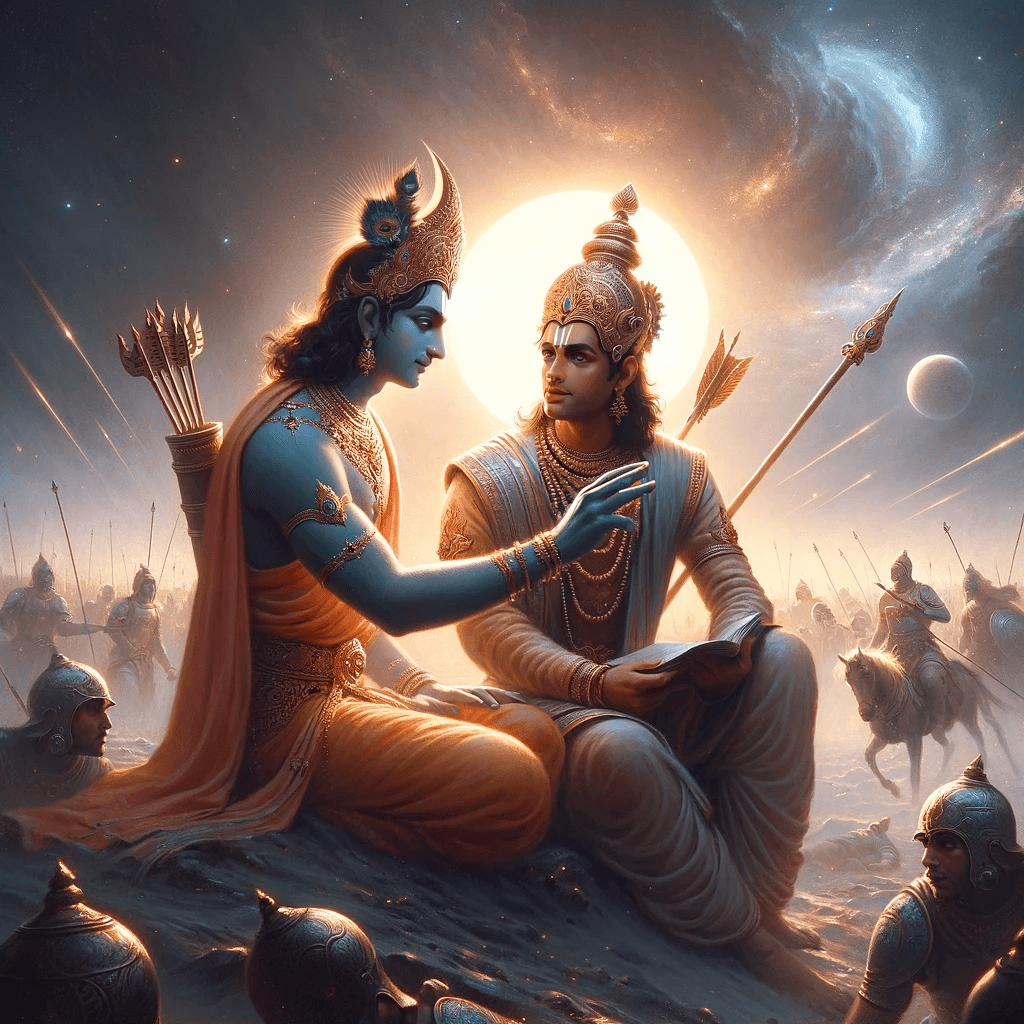The Bhagavad Gita's Stance on Violence
The Bhagavad Gita, a central text in Hindu philosophy, is often misconstrued as advocating for violence due to its setting on the battlefield of Kurukshetra. This article aims to dispel this myth by delving into the deeper philosophical teachings of the Gita, which emphasize dharma (righteous duty), ethical action, and spiritual wisdom.
Myths/Truths and Other Details

Why There is a Myth?
The misconception about the Bhagavad Gita advocating violence primarily arises from its superficial interpretation. The dialogue between Lord Krishna and Arjuna occurs just before a great war, leading some to interpret the text as a justification for warfare. However, this interpretation fails to consider the Gita's broader philosophical context and its emphasis on internal moral and spiritual battles.
What's the Truth?
The Bhagavad Gita does not promote violence as an end in itself. Instead, it addresses the moral and ethical dilemmas faced by Arjuna, who is torn between his duty as a warrior and his aversion to fighting against his own kin. The Gita's teachings revolve around the pursuit of righteousness, the impermanence of the physical body, and the immortality of the soul.
Detailed Analysis
Scriptural References
- Eternal Nature of the Soul: The Gita teaches that the soul (atman) is eternal and indestructible (Bhagavad Gita 2.18-20). This perspective redefines the concept of death and killing in the context of the eternal journey of the soul.
- Dharma and Righteous Action: The text emphasizes performing one's duty (svadharma) in alignment with universal righteousness (dharma), without attachment to personal gain or outcomes (Bhagavad Gita 2.47).
Philosophical Context
- Krishna's Counsel: Lord Krishna's guidance to Arjuna is not a call to violence but a discourse on fulfilling one's duties in accordance with dharma. Krishna advises Arjuna to rise above personal emotions and attachments and view his actions from a higher spiritual perspective.
- Concept of Karma Yoga: The Gita introduces the concept of Karma Yoga, the path of selfless action, where the focus is on performing one's duty without attachment to the fruits of the action.
Ethical and Moral Dimensions
- Moral Dilemma: Arjuna's hesitation to fight is rooted in his moral and ethical doubts. The Gita addresses these concerns by differentiating between physical actions and their spiritual significance.
- Just War Theory: While the Gita is set in a wartime context, its teachings can be interpreted as aligning with the principles of a just war, where the focus is on the righteousness of the cause rather than the act of violence itself.
...




